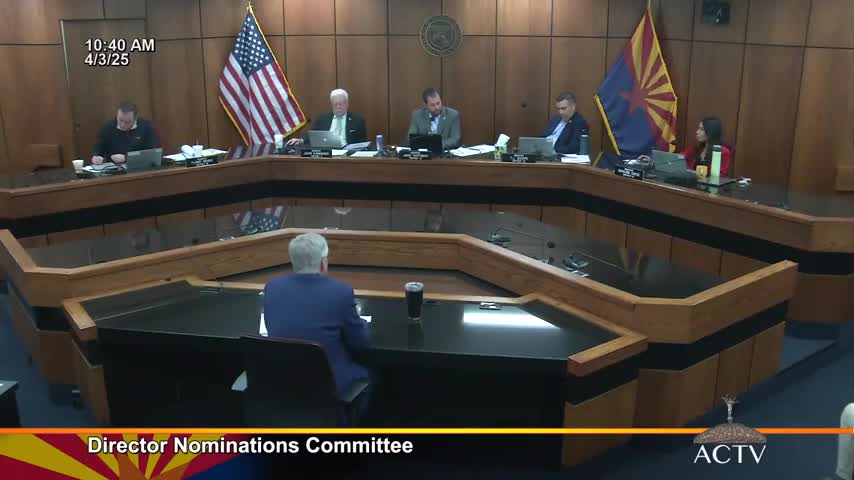Senate Committee Questions Paul Briarley's Judgment for Agriculture Director Role
April 03, 2025 | 2025 Legislature Arizona, Arizona
Thanks to Scribe from Workplace AI , all articles about Arizona are free for you to enjoy throughout 2025!

This article was created by AI using a video recording of the meeting. It summarizes the key points discussed, but for full details and context, please refer to the video of the full meeting. Link to Full Meeting
The committee's discussions revealed a deep divide among members regarding Brierley's suitability for the position. Brierley faced scrutiny for his previous criticisms of former President Donald Trump, which he acknowledged in the meeting. In a Facebook post from 2020, he described Trump as a "serious threat to our constitutional republic," a statement that has resurfaced as a point of contention. Critics within the committee expressed concerns about Brierley's ability to foster a cooperative relationship with the federal government, given his past rhetoric.
Committee members engaged in a heated debate over the relevance of Brierley's political history to his current nomination. Some argued that his previous comments could hinder his effectiveness in the role, while others defended his right to change his political stance and emphasized his extensive experience in agriculture. Supporters pointed to Brierley's long career and his ability to build bipartisan relationships, arguing that he has learned from his past and is now focused on public service.
Despite the divided opinions, the committee ultimately moved to recommend Brierley's confirmation to the full Senate. However, several members expressed the need for a detailed work plan addressing concerns related to overcharging and regulatory practices within the agriculture sector before the final vote. This request underscores ongoing apprehensions about Brierley's judgment and the potential impact of his past statements on his ability to lead effectively.
As the Senate prepares to vote on Brierley's nomination, the discussions from this meeting highlight the complexities of political history in the context of public service. The outcome will not only determine Brierley's future but also reflect the Senate's stance on the intersection of politics and governance in Arizona's agricultural landscape.
Converted from 04/03/2025 - Senate Director Nominations meeting on April 03, 2025
Link to Full Meeting
Comments
View full meeting
This article is based on a recent meeting—watch the full video and explore the complete transcript for deeper insights into the discussion.
View full meeting